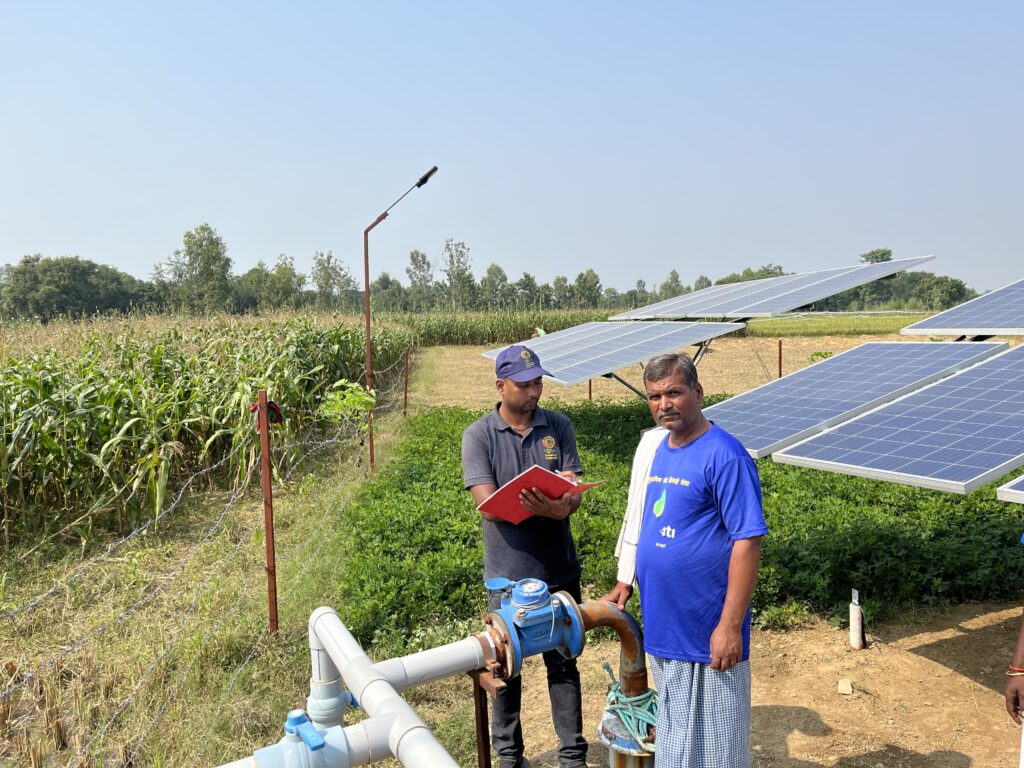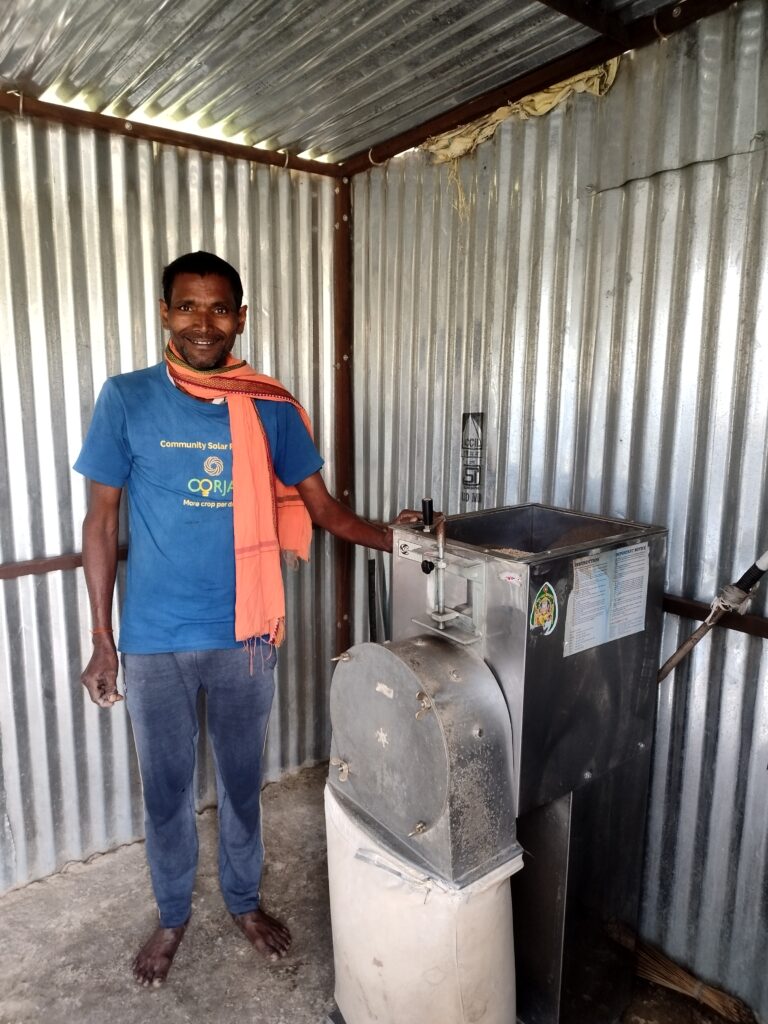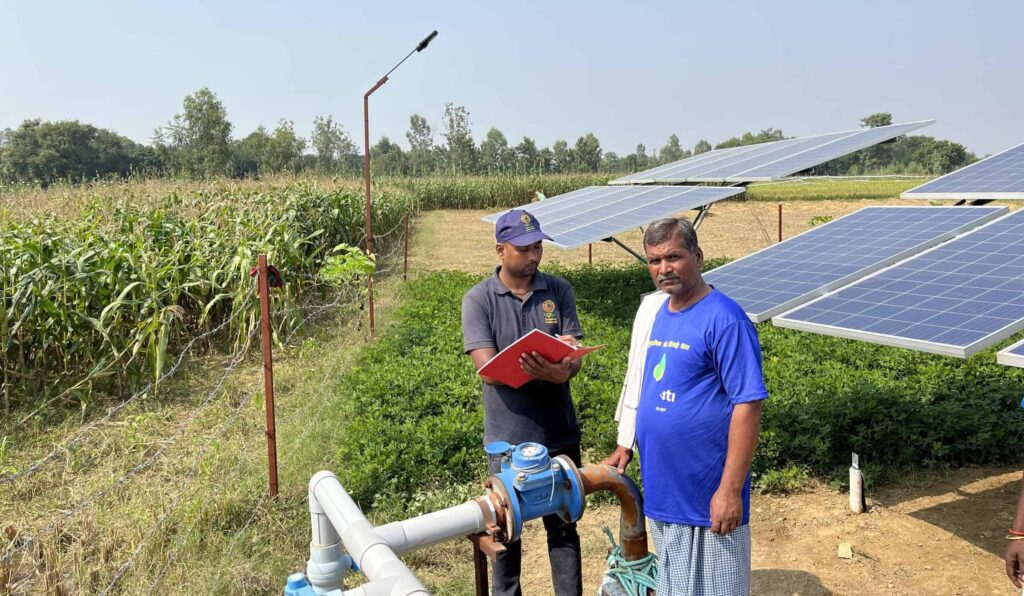Oorja Development Solutions Limited
70% of rural households in India depend on the agriculture value chain for their sustenance. Of these, 86% of the farmers are small and marginal. These farmers practise agriculture on landholding of fewer than 2 acres which is often fragmented. Smallholder farmers usually engage in growing staple crops such as rice and wheat. They often lack access to agricultural information and quality inputs to substantially increase their income and make their cropping systems more climate-resilient. Their lack of access to affordable and reliable energy services for productive use and reliable irrigation also lowers their agricultural productivity and income from farming.
As the global population is expected to reach close to 10 billion by 2050, satisfying the increased demands of food production with existing farming practices is likely to lead to more intense competition for natural resources, thus increasing greenhouse gas emissions and further leading to land degradation and deforestation. As climate change disproportionately affects food-insecure regions, it holds that it will jeopardise food production and impact the livelihood and income of smallholder farmers. Some of the aforementioned challenges could be addressed by access to modern energy intervention. Even though suitable technologies for irrigation and cooling facilities are readily available, the lack of access to affordable energy or financing options to invest in clean energy is among the constraints that prevent smallholder farmers from accessing them. Additionally, farmers require personalised climate-smart advisory to help identify crops that will be profitable and tolerant to climate stresses.
Oorja’s Intervention
Oorja is a Farming-as-a-Service (FaaS) company that works at the intersection of agriculture and climate change. Oorja finances, installs, operates and maintains decentralised solar agri-energy infrastructure for community use at the farm or market gate through a Pay-per-use (PPU) business model and sells irrigation, milling, and cooling as a service to small and marginal farmers and traders. These agri-energy solutions eliminate the upfront technology acquisition cost and provide accessible, affordable and uninterrupted on-demand service that finds its reach among the bottom of the pyramid farmers and marginalised communities.
In 2022, Oorja introduced a complimentary Farmer Advisory service to provide smallholder farmers training on modern and sustainable agronomic practices to help boost yields, engage in new growing seasons, diversify their cropping patterns beyond staple crops and move towards high-value crops. This entails diverse training and demonstrations provided by in-house agronomists such as best practices for each cultivation step, from soil preparation to precise irrigation to harvesting. Farmers are also introduced to methods like crop intensification, diversification, vermicomposting, and System of Rice Intensification (SRI) and System of Wheat Intensification (SWI). The service has played a crucial role in improving the livelihoods of smallholders and reducing rural poverty by equipping farmers with the information, knowledge, and skills needed to increase their productivity and profitability, manage risks, and engage effectively with markets. Oorja’s Climate Smart Farm Advisory services are helping farmers adapt to the effects of climate change by facilitating them in the adoption of scientific cropping sowing techniques, multi-cropping, alter the sowing and harvesting time considering heat waves conditions, switch to natural insecticide, pesticides and fertilisers etc. It is estimated that implementing these climate adaptation measures would increase their crop yields by 7-15%. Whereas access to science-based cultivation guidance at the right time could complement the traditional method of agricultural practices and increase farm productivity by up to 20%.
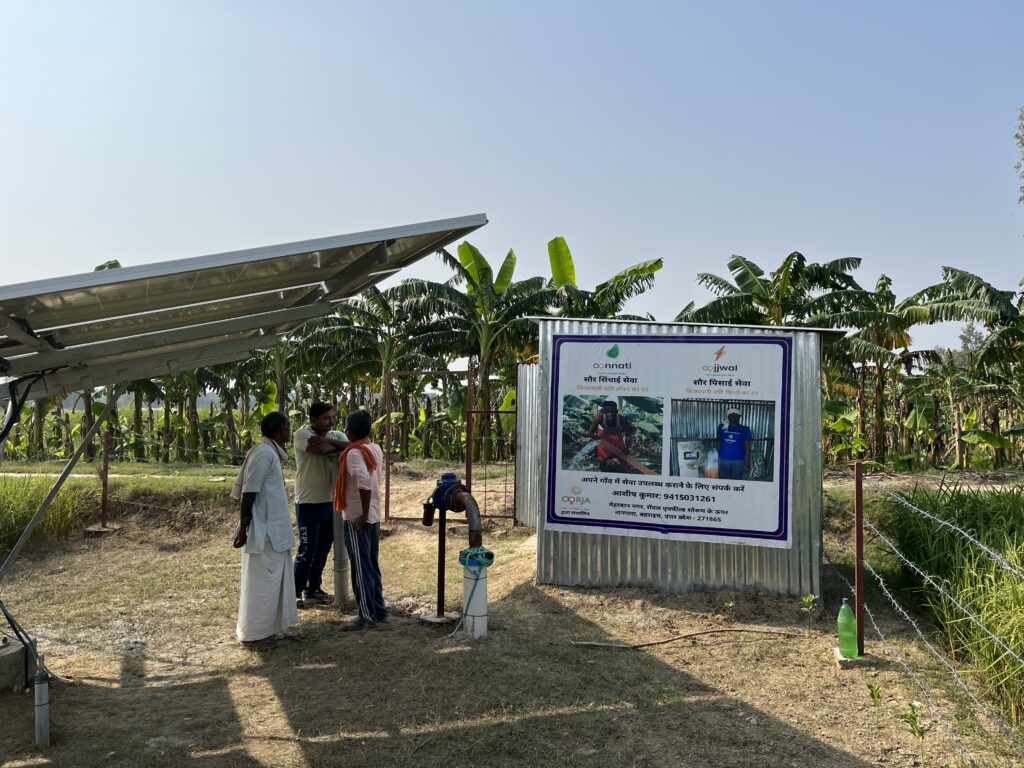
Impact and intersectionality
Farmers who have been trained under the Farmer Advisory Service report that the SRI method of rice cultivation has reduced the need for irrigation by 15-20% and created savings on labour and agricultural input costs. Rice cultivated using the SRI method are resilient to climate shocks and have higher yields of up to 23%. The services have enabled low-income farmers to reduce their input costs, boost their crop yields by up to 30%, diversify and expand their cropping systems, and sustainably increase their income by 50-100% from farming. Cooling as a service has reduced produce loss and increased the shelf life of produce as well as price realisation by the farmers. Approximately 71,700+ kgs of food waste have been avoided due to the presence of cold storage facilities. Farmers have increased cropping seasons from 2 to 3 growing seasons. Through our intervention, we have seen a 20% reduction in chemical inputs, and farmers have transitioned to natural or locally-made inputs. The availability of year-round irrigation, milling and cooling services has enabled farmers to diversify crops such as peppermint, mustard, potato, garlic, fruits, sugarcane etc.
At the same time, Oorja’s agri-energy services in replacing diesel fuel consumption with solar energy have enabled 18,600+ smallholder farmers to transition sustainably from diesel to low-carbon alternative energy. The agri-energy services have saved 1,387 tonnes of CO2e from the atmosphere and INR 23.6 lakh (US$ 29,524) on fuel expenditure.
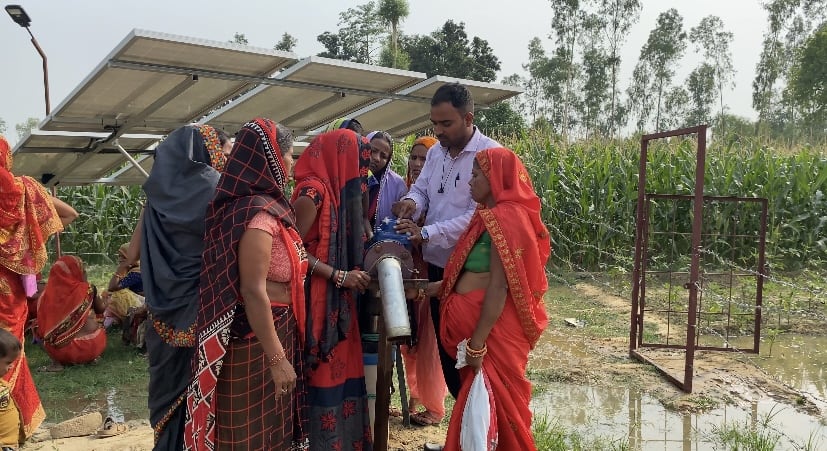
In addition to the provision of community-scale services, the organisation also focuses on mobilising and building the capacity of women farmers, and additional technical and agronomic training is offered to marginalised women who have been deprived of participation in decision-making in rural Uttar Pradesh. It is observed that smallholder farmers and landless households are the first to lose out in case of climatic events and increasingly seek employment opportunities outside of agriculture. Thus, there is a driving increase in migratory flows, especially of male members of rural households. To address this, Oorja hires farmers from the local community and provides them gainful employment as pump, mill and cold storage operators. So far, the organisation has created 26 jobs in the last-mile rural communities.
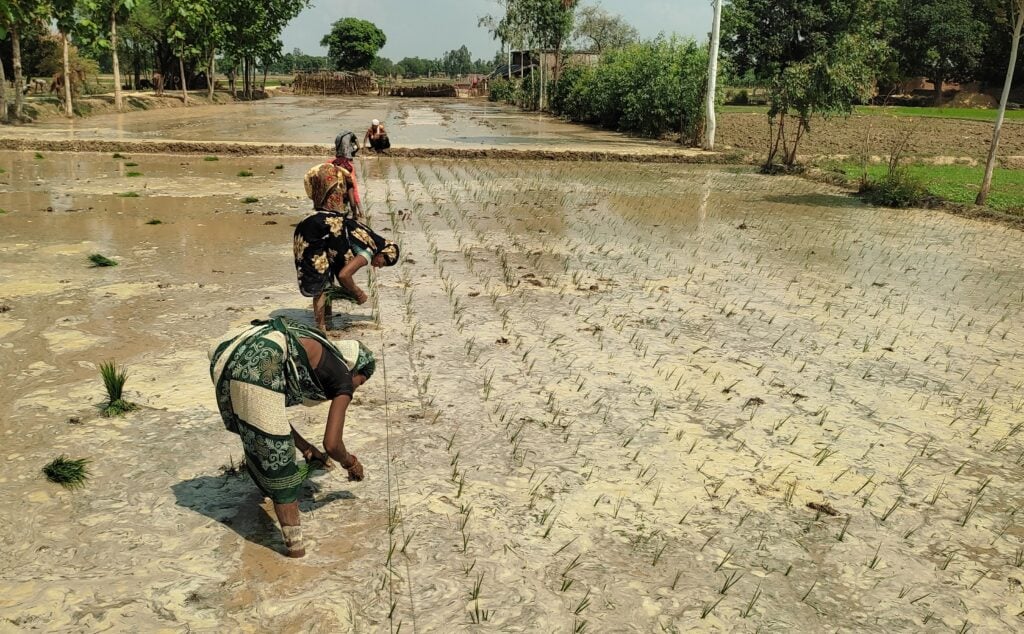
Scalability and future plans
In the coming years, Oorja plans to further expand its farmer advisory services and train an additional 1,000 farmers on modern agriculture techniques, diversification from staple crops to high-value crops, precise input application and transition away from chemical inputs. We plan to disseminate information about applications that can provide early warnings for extreme weather, crop health monitoring and appropriate seed varieties to increase the climate resilience of smallholders and help them adapt to changing climatic conditions. We are also forming farmer groups to enable cross-learning among farmers, knowledge sharing about mobile applications for access to market and weather-related information, and training on emerging farming techniques by expert Agronomists. Oorja’s vision is to empower 1 million farmers globally by 2030 with the agricultural services they need to increase their income and quality of life in a sustainable way.
